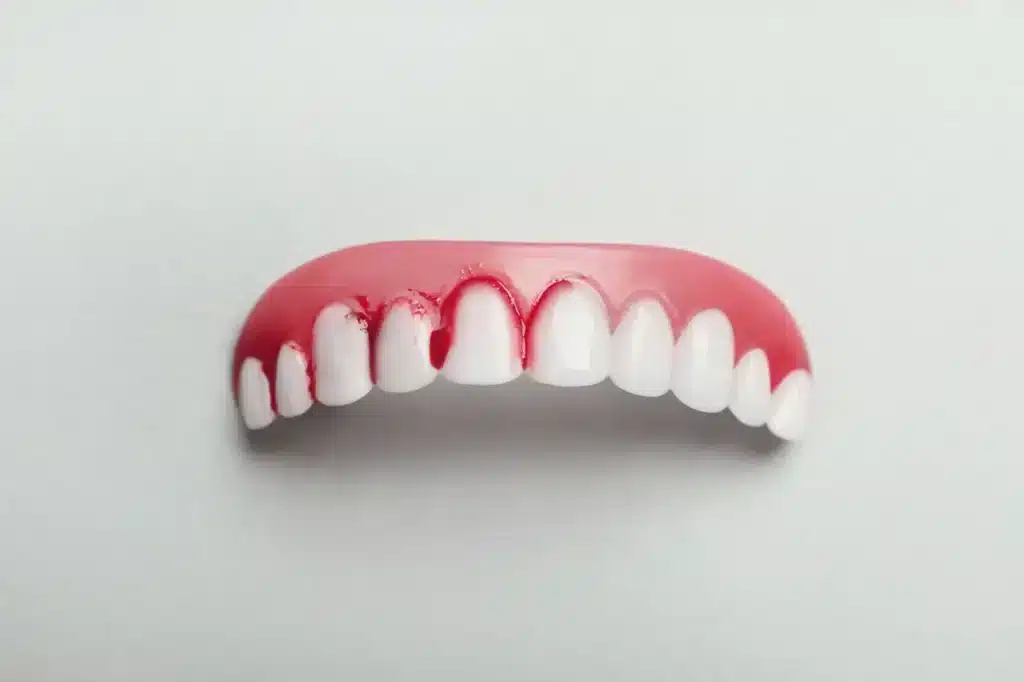Bleeding after a dental implant is usually expected and considered a normal thing. But how to stop bleeding after dental implants? In most cases, the bleeding stops on its own.
But if you are experiencing excessive bleeding after dental implant surgery, you must visit your dentist or take befitting steps to stop it effectively. However, if you have issues or time problems visiting your doctor, you need not worry about it anymore. We are here to provide appropriate guidelines to help you stop bleeding after dental implants.
Steps to Stop Bleeding After Dental Implants
Gauze should be Gently Chewed
Following surgery, your dentist or oral surgeon will cover the implant site with gauze. During the next 30 minutes, carefully bite down on the gauze. The blood clot that is formed is essential for preventing bleeding.
Carefully Touch the Site
Do not touch, disrupt, or overly clean the surgical site, especially in the first 24 hours after surgery. This may prevent the blood clot from forming and cause slow bleeding.
Raise your Head High
Keep your head raised at all times while lying down to limit blood flow to the head and helps stop bleeding after dental implants.
Use an Ice Compress
On the outside of your cheek, near the surgery site, if you notice swelling or pain. This may indirectly help to stop bleeding after dental implants and minimize swelling.
Avoid Physical Activities
Avoid physically demanding activities for at least 24 hours after surgery, which may increase bleeding and blood flow.
Avoid Drinking and Smoking
These habits can slow healing and cause bleeding. After surgery, staying away from these items for a few days is recommended.
Be Hydrated
Drink plenty of water and eat soft, chilly meals that are not irritating to the surgery site and keep you hydrated.
Visit your Dentist
Contact your dentist or oral surgeon immediately if the bleeding continues over a few hours or is excessive and uncontrollable. They can evaluate the issue and offer further treatment to stop bleeding after dental implants.

What Causes Bleeding After a Dental Implant?
Following implant surgery, there may be bleeding for the following reasons:
Trauma caused by Surgery
Inserting the implant into the jawbone during the procedure is necessary. The dentist or oral surgeon may need to create openings in the gum tissue. The surgical site may bleed as a result of the trauma.
Poor Clot Formation
The body’s normal reaction during surgery is to create a blood clot to stop the bleeding and speed up the healing process. The bleeding may continue if the blood does not properly clot.
Medication
Some medicines, such as nonsteroidal anti-inflammatory drugs (NSAIDs) or blood thinners (anticoagulants), may hinder your body’s ability to form clots and increase bleeding.
Infection
Infections may result in tissue damage and inflammation, which could lead to bleeding from the implant site.
Gum Disease
If the gum tissue and bone around the implant have weakened, it is more likely to bleed resulting from surgery.
Smoking
Smoking can reduce blood flow, slow healing, and increase the risk of post-bleeding problems.

Allergic Reactions
Sometimes, people may have an allergic reaction to the implant’s parts, which might irritate their tissues and result in bleeding.
Conclusion
In conclusion, apply mild pressure with gauze, avoid irritating the site, and adhere to post-operative instructions to stop bleeding after dental implants. For a speedy recovery and the best results from an implant, maintain good dental hygiene and get immediate medical help if bleeding continues. For the best results and to truly enjoy the advantages of a restored smile, patience and careful monitoring are necessary.


